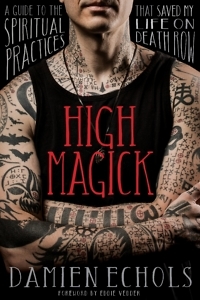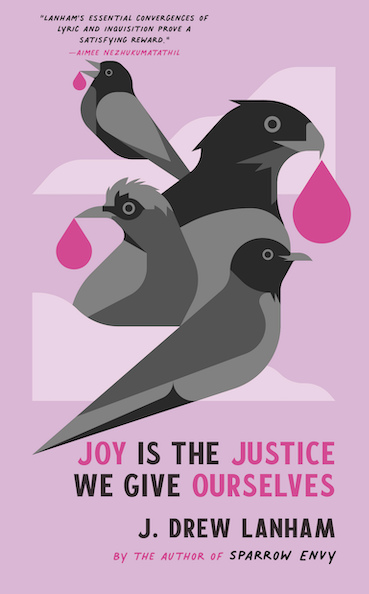Convictions
Damien Echols guides readers through the spiritual practices that saved him on death row
“You’re already doing magick,” Damien Echols writes in his introductory guide to energy-based spiritual practices, High Magick. “With every thought, word, and deed you are influencing the world around you and determining what comes your way.” In describing his own rituals and meditations, Echols offers a unique glimpse into the way he survived eighteen harrowing years on death row.

Over those years, Echols became the most prominent member of a group known as the West Memphis Three—a trio of teenage boys convicted in 1994 of the grisly murder of three younger boys in their community. Echols and the others insisted on their own innocence, and their case quickly became a cultural flashpoint. Had community authorities focused on these teenagers because they—Echols in particular—had shown an interest in occult subjects, enjoyed heavy-metal music, and wore black clothing? And could our own fates be just as easily snatched by the whims of others?
Their notoriety grew over time, as did the pile of evidence that pointed to a false conviction. Alongside the impassioned efforts of documentary filmmakers, musicians, and actors, as well as the dedication of everyday people who were moved by the boys’ plight, their lawyers navigated the labyrinthine system of the Arkansan appeals process, snagged at every turn by bureaucracy. In 2011, when evidence of their innocence became overwhelming, they were finally offered an Alford Plea—a peculiar legal move which allowed them to maintain their innocence while formally pleading guilty for pragmatic legal reasons. The plea finally led to their release after eighteen years in prison.
Though no longer on death row, Echols still lives under the shadow of his murder conviction. But he has sought a bigger life outside prison, one that integrates and expands upon the spiritual practices that helped him survive his ordeal. He positions his practices as part of a very long spiritual tradition that has existed throughout time, pursued by mystics of various faiths all over the world. “Magick” is merely one word for that tradition, and Echols uses it to encompass and distill complex spiritual practices for readers who may never have encountered these ideas before.
 High Magick focuses on providing rituals and meditations to help people awake the unconscious “universe of potential” within them and shift their own relationship to the events of their lives. “Most people never cultivate the seeds of that potential,” Echols argues, “so the seeds go to waste and the people go through life wondering what went wrong, or blaming the world for everything that did go wrong. Magick waters those seeds to make that potential stir, grow, and flower.”
High Magick focuses on providing rituals and meditations to help people awake the unconscious “universe of potential” within them and shift their own relationship to the events of their lives. “Most people never cultivate the seeds of that potential,” Echols argues, “so the seeds go to waste and the people go through life wondering what went wrong, or blaming the world for everything that did go wrong. Magick waters those seeds to make that potential stir, grow, and flower.”
One result of such practice, Echols writes, is the experience of growing “increasingly aware of the currents of energy active all around you, and the interactions between energy and the material realm.” By developing, like a muscle, our conscious use of the energy within us, he argues, we become less powerless in the face of difficulty and suffering. To that end, the book outlines a range of methods that include visualizations, breath work, and meditation.
The second half of the book incorporates more specific and involved practices, including the use of talismans, amulets, and tarot decks. Echols is careful in these sections to keep his focus clear: what matters most is not the trappings of any spiritual practice but, rather, the internal discipline underpinning it.
Echols’s story has carried a resonating power as it has unfolded over the past two decades. High Magick serves as a useful introduction to energy-based practices for those who are uninitiated, but the book will also appeal to those who are curious about Echols himself. In other words: come for the notoriety; stay for the spirituality. Echols has created a thoughtful and accessible introduction to spiritual ideas which have remained obscure and misunderstood within the mainstream. Through such terrain, he makes a powerful guide.

Emily Choate holds an M.F.A. from Sarah Lawrence College. Her fiction has been published in Shenandoah, The Florida Review, Tupelo Quarterly, and The Double Dealer, and her nonfiction has appeared in Yemassee, Late Night Library, and elsewhere. She lives in Nashville, where she’s working on a novel.


